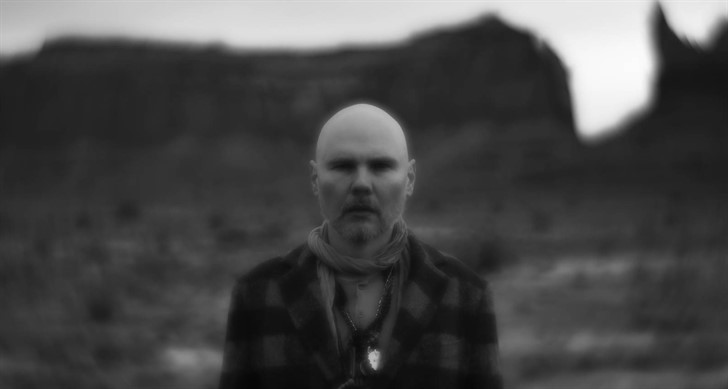My Page: William Patrick Corgan

My name has become this running joke throughout my life and, as I approached my mid-century mark, I started telling friends that I should go back to my Christian name, William. Growing up, I wasn’t Billy. My dad was Bill, so I jokingly started saying to people, “Call me William.” So Billy always felt a bit weird, like a stage name.
When I asked people to start calling me by my given name, it was almost like I was holding up a pinky drinking tea. It was a strange reaction; I just love stuff like this. It amuses me and, after all these years, the fact that something still amuses me is a good thing. In the world we live in today, people are a little scared to ask if they should call me William or Billy. But I really don’t care. I’ve always been identified on social media under my full name and I’ve released a few records as WPC. It causes this funny confusion, so I’m just going with the confusion of it all. It seems to generate some sort of energy that doesn’t make any sense to me, but it’s OK. It’s very strange to have people react negatively toward me for using my real name. It’s not like I suddenly decided to call myself “Quasar 42.”
Ogilala [Corgan’s October 2017 solo album] started while I was doing a Pumpkins album—a follow up to the last album we released. I lost my mind and I was like, “I can’t do this.” So I quit that. And then I found myself a bit depressed, and thought, “I’m just going to go back to writing songs. As long as I write some good songs, the songs will tell me where to go.” It was just about writing and not worrying about what pile they went into. I ended up really liking them, and called up Rick Rubin and said, “I’m doing this solo acoustic work. Can you recommend a producer—a wiz person or a rising star?” And he said, “Well, I’m really interested in that. Will you send me the songs?” So I sent them to him, and he called back and said, “I love them. Write some more.” That was the boost in confidence I needed.
I’ve always been a huge fan of Bob Dylan and Neil Young. In many ways, that’s more the music that I would listen to in my personal life. I was always super attracted to the raw quality of their music and I would play that stuff behind the scenes. So it just all seemed to come together—“I’ve done everything else, maybe it’s time to finally just be myself without all this adornment and confusing public persona—all this stuff that I’ve gotten into over the years that amuses me and makes people crazy.” It felt right. Maybe I was in the right place in my life—I’d just had a kid—that it felt OK to say, “I’m going to do these songs.” And don’t forget, I had Rick standing next to me. And if he thinks they’re good, they’re good. So I didn’t have to carry this weight myself; Rick carried it for me.
To me, the argument about music aesthetics is always a really bourgeoisie one. My father used to say, “Music is music.” Duke Ellington said, “There’s two types of music: Good music and bad music.” For somebody who grew up on heavy metal, hard rock—Deep Purple, Jimi Hendrix, Black Sabbath, The Cure—to me, it was always like, “Why do I have to fit in some lane?” That was always something that critics really struggled with [in regard to] the band—“What kind of band are you guys?” We’re like The Beatles or Led Zeppelin; we just want to do what we want to do. And if we want to do a psychedelic song or a country song, we’ll do it.
It’s not that I have a hostile opinion of my past; I don’t like people defining my past for me. I want to be able to say, “This is the past that I recognize. This is the past that I feel closest to.” There are some songs that I really love and, when I try to play them acoustic, I think, “It just doesn’t feel right.” It’s not that I’m not conscious of expectations and things like that, but I just try to be honest about it.
This article originally appeared in the December 2017 issue of Relix. For more features, interviews, album reviews and more, subscribe here.



















